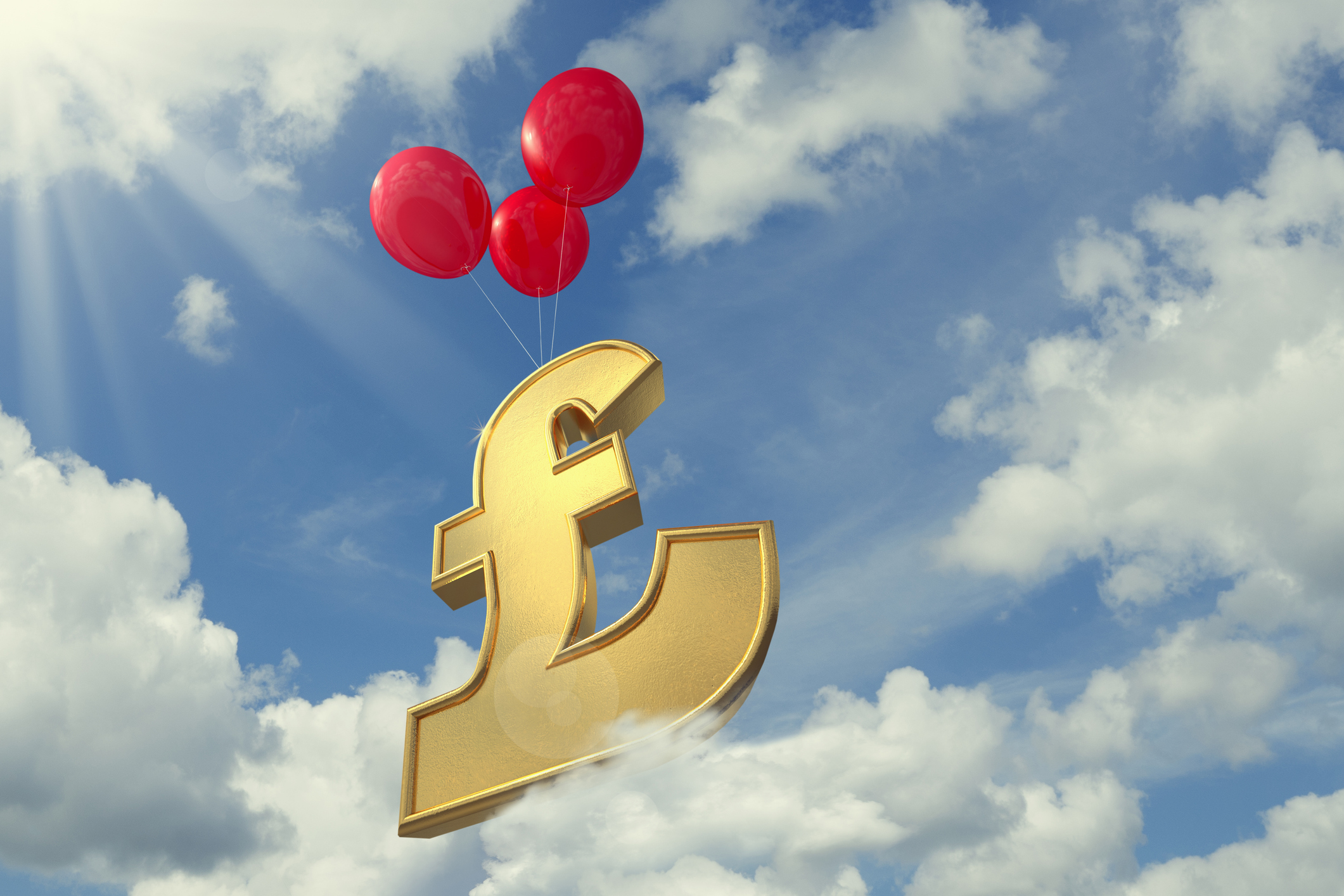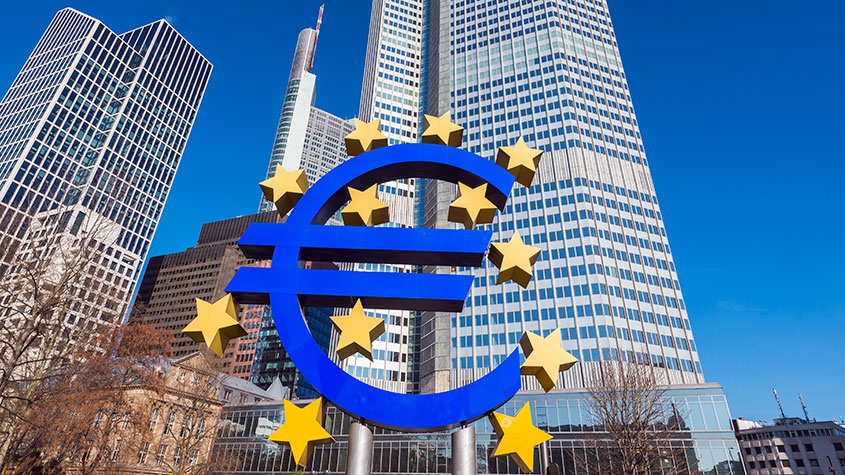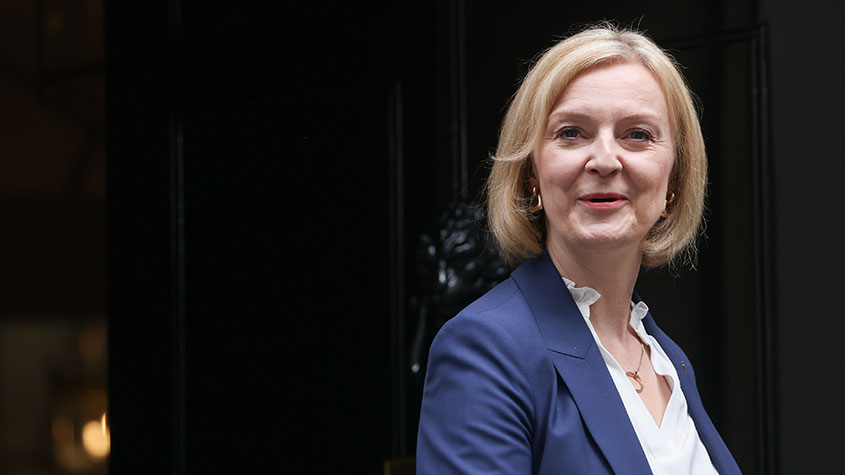Why are so many of our politicians tempted to act like dictators?
Politicians have an uncanny habit of 'going dictator' on us, doing what they decide is best for the people, no matter what the people think. Bengt Saelensminde explores why.
Get the latest financial news, insights and expert analysis from our award-winning MoneyWeek team, to help you understand what really matters when it comes to your finances.
You are now subscribed
Your newsletter sign-up was successful
Want to add more newsletters?

Twice daily
MoneyWeek
Get the latest financial news, insights and expert analysis from our award-winning MoneyWeek team, to help you understand what really matters when it comes to your finances.

Four times a week
Look After My Bills
Sign up to our free money-saving newsletter, filled with the latest news and expert advice to help you find the best tips and deals for managing your bills. Start saving today!

The arch-architect of the eurozone, former German chancellor Helmut Kohl, once said that he'd been forced to act "like a dictator" to push through European unification. Despite what the public wanted (or thought they wanted), Kohl and other like-minded politicians bulldozed through what they thought was best for millions of people.
And looking at Greece's ultimate showdown with the European Union (EU) machine, things hardly seem to have changed at all. Greek citizens voted to ignore euro-imposed austerity and yet, despite objections, Greek prime minister Alexis Tsipras returned to Athens this week with a deal that was arguably even worse than the one the public emphatically threw out.
Even the International Monetary Fund (IMF) agrees that Greece needs debt relief 30 years of it, at that. But what Tsipras returned with was little relief, and more austerity.
MoneyWeek
Subscribe to MoneyWeek today and get your first six magazine issues absolutely FREE

Sign up to Money Morning
Don't miss the latest investment and personal finances news, market analysis, plus money-saving tips with our free twice-daily newsletter
Don't miss the latest investment and personal finances news, market analysis, plus money-saving tips with our free twice-daily newsletter
So what is it that bends strong-headed politicians like Tsipras and makes them yield to the meisters of centralist institutions like the EU?
And this isn't just a Euro-politician' issue. Let's not forget that the only reason that the UK has won a referendum on Europe, was ultimately due to public support for an outsider party, Ukip. There's no way any of the mainstream parties wanted to hear what the public had to say on the issue of ever more centralised power in Brussels.
To put it bluntly, politicians of every hue have an uncanny habit of "going dictator" on us. Why? I don't have the answer, but here are three of the most plausible motivations I can think of let me know your own views in the comments section (keep it civil).
Retirement planning
Of course, not everyone fancies leading Europe. For others there are lucrative positions in banks and investment groups at the heart of a centralised system. Indeed, Blair found his way into many a lucrative hotseat.
As I read company reports, it's hard to ignore the number of board seats taken by former politicians. The fact is, many multinationals, let alone the banks, love the centralised approach to government and they'll promote any politician that feels the same way. For the banks, belonging to a large central power means they're underwritten by a nice big entity. Thank heavens for RBS it was part of the UK. And for any multinational, the reams of regulation offered by centralist institutions like the EU create barriers to entry for any upstart rivals.
Interestingly, over recent years, we've even seen a revolving door develop, whereby former City bigwigs have taken up political positions too. But let's not get too conspiratorial.
A higher purpose (also known as egomania)?
In order to achieve the individual's significant goal', co-operation is required. They call it diplomacy. And they put in place an army of stooges and diplomats to make it happen. If they can achieve a significant goal, they're on the way to a meaningful epitaph and of course, some bragging rights along the way. That's not to mention the book deal, or the odd (and extremely lucrative) after-dinner speech.
So do these moralistic, or even hubristic goals really just come down to money, once again?
Maybe there's more...
You can't handle the truth!
A Few Good Men
I suspect that once in power, many politicians begin to err towards Jessup's way of thinking that the important decisions involved in running a country can't be left to the whim of the public. In fact, I suspect that many a man on the street believes this too; thus deferring important decisions to the political elite. As such, politicians on all sides tend to coalesce. The ideas are no longer as varied and thoughtful as those of the average public.
Tsipras was undoubtedly told some home truths once he'd taken his country to the brink of euro ejection. Remember, he had been an outsider. He was voted in off the back of views that chimed with the public. His (now ex-)finance minister, Varoufakis hadn't ever had any political bent, but came in to save Greece'.
But Tsipras has suddenly yielded to the centre. What on earth did they tell him?
Of course, this type of indoctrination stretches further than economic stratagems. There's a notion that the public doesn't understand, and can't be trusted to back the right' decisions.
This is, of course, the same sort of thinking that leads to any sort of dictatorial state, from either side of the political spectrum. And it also tends to ignore the fact that history shows that centralisation tends to deliver awful outcomes.
Have we thus ended up with a charade of democracy, where the central policy unit plans direction? Sounds conspiratorial, I know. But it's hard to fathom why it is that the public's voice is always subjugated to the point that it's only offered a say in extremis. And even then, any referendum a la grec', can be ignored!
It'll be interesting to see what happens to the youthful and ever charismatic Tsipras as his career progresses. He might have made enemies, but I suspect he's found some powerful allies within the central machine too. He must at the very least get a book out of it!
Get the latest financial news, insights and expert analysis from our award-winning MoneyWeek team, to help you understand what really matters when it comes to your finances.
Bengt graduated from Reading University in 1994 and followed up with a master's degree in business economics.
He started stock market investing at the age of 13, and this eventually led to a job in the City of London in 1995. He started on a bond desk at Cantor Fitzgerald and ended up running a desk at stockbroker's Cazenove.
Bengt left the City in 2000 to start up his own import and beauty products business which he still runs today.
-
 How a ‘great view’ from your home can boost its value by 35%
How a ‘great view’ from your home can boost its value by 35%A house that comes with a picturesque backdrop could add tens of thousands of pounds to its asking price – but how does each region compare?
-
 What is a care fees annuity and how much does it cost?
What is a care fees annuity and how much does it cost?How we will be cared for in our later years – and how much we are willing to pay for it – are conversations best had as early as possible. One option to cover the cost is a care fees annuity. We look at the pros and cons.
-
 No peace dividend in Trump's Ukraine plan
No peace dividend in Trump's Ukraine planOpinion An end to fighting in Ukraine will hurt defence shares in the short term, but the boom is likely to continue given US isolationism, says Matthew Lynn
-
 Europe’s new single stock market is no panacea
Europe’s new single stock market is no panaceaOpinion It is hard to see how a single European stock exchange will fix anything. Friedrich Merz is trying his hand at a failed strategy, says Matthew Lynn
-
 Britain’s inflation problem
Britain’s inflation problemInflation in the UK appears to be remaining higher for longer when compared with similar rich countries. Why? And when can we expect a return to normal? Simon Wilson reports.
-
 Eurozone inflation hits 10.7% in October
Eurozone inflation hits 10.7% in OctoberNews Inflation across the eurozone hit 10.7% in October. What does it mean for your money?
-
 A forgotten lesson on the dangers of energy price caps
A forgotten lesson on the dangers of energy price capsAnalysis Liz Truss’s proposed energy price cap is an ambitious gamble. But a similar programme in Spain ended up being a fiasco, say Max King and Tom Murley. Here, they explain why Truss’s plan could be doomed to failure.
-
 Don't be scared by economic forecasting
Don't be scared by economic forecastingEditor's letter The Bank of England warned last week the UK will tip into recession this year. But predictions about stockmarkets, earnings or macroeconomic trends can be safely ignored, says Andrew Van Sickle.
-
 The wolf returns to the eurozone’s door
The wolf returns to the eurozone’s doorEditor's letter The eurozone’s intrinsic flaws have been exposed again as investors’ fears about Italy’s ability to pay its debt sends bond yields soaring.
-
 Eurozone economy heads for paralysis
Eurozone economy heads for paralysisNews Record high energy prices, the threat of recession in Germany and squabbling in Italy's government has left the eurozone fighting fires on all fronts.